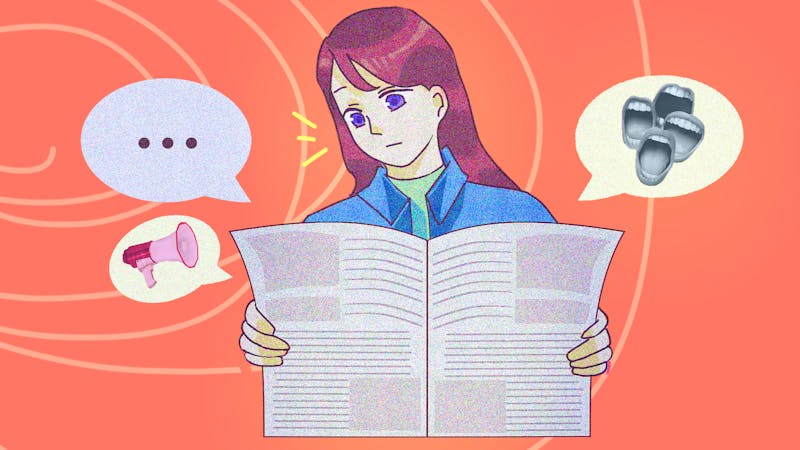
Senior columnist Mariana Martinez examines the motives and politics behind the Trump administration's foreign aid freeze.
Credit: Jesse ZhangIf I could describe my political position with regard to American intervention in one word, I would say “idealistic.” This column has probably become known for advocating in favor of proper United States intervention that seeks to promote both American interests and equality as well as prosperity in the developing world, which is why I was sad to find out about 1968 Wharton graduate and President Donald Trump’s foreign aid freeze.
The U.S. Agency for International Development is key in leading humanitarian efforts around the world. It distributes tens of millions of dollars throughout the world. It is not only important in helping provide relief efforts for global crises, but it also strengthens relations between the developing world and the United States. It’s also a pillar of soft power that guarantees goodwill to the United States from other countries. For instance, USAID was crucial during the COVID-19 pandemic in helping distribute vaccines and support health workers worldwide.
Thus, the implications of the foreign aid freeze are endless. Stopping the aid could mean that international humanitarian crises will get much worse. The United States is the largest donor for humanitarian aid in the world. As of 2023, it distributed $72 billion. Compared to other G7 countries’ aid allocation, the United States is significantly ahead; Germany, the second-largest donor, donated $41 billion in 2023.
However, I don’t want to argue why the United States should or should not provide aid. Instead, this issue got me thinking about what is morally right versus what is strategically correct, politically speaking.
Removing foreign aid aligns perfectly with Trump’s ideas of “America first.” As Trump announced his intentions to cut foreign aid, he argued that these efforts “help to promote ideas in foreign countries that are directly inverse to harmonious and stable relations [among countries].” As I read this, I immediately wondered: How much of the aid given to countries is actually reflected as an improvement in living conditions in said countries? Not much, according to the reactions of several people on social media.
People immediately claimed that receiving or not receiving aid from the United States made little difference, as large parts of it got lost due to corruption. Corruption greatly reduces the effectiveness of foreign aid: When there’s corruption in the way, less money goes to the intended recipients. For instance, Nigeria’s education system has been greatly affected due to fund mismanagement. In the long run, corruption within foreign aid channels slows down development.
If we acknowledge that this is true, then Trump’s motives might make sense. It can be argued that from the surface level, his decision protects American interests and therefore seems to be a strategically correct choice within his own “America first” platform. Does this mean, then, that in broader politics, there’s an absolute clash between morality and strategy? Is there no place for ethics in international relations?
A realist model would argue that there is not. That perhaps, you, as an individual, may use morality in defining your choices but that a state has no time to worry about that. A state must be focused on survival and cannot afford to muse about morals when making political decisions.
Yet, this seems to clash with more classical interpretations of politics, where civil duty was considered to be the highest expression of human virtue. Aristotle considered “political activity as the exercise of human virtue.” Can that virtue hold more weight than political strategies that put America first?
It seems to be a millennia-long question that I simply can’t answer.
However, I do think that somehow, there must be a way to find a place for morality in politics. If states can’t afford to worry about morals, as their top priority is to protect their interests, international organizations should be taken more seriously — and these organizations in themselves should work more to provide a solid rulebook instead of serving only to the interests of the few. The international system should be solid enough to provide aid to countries without needing a superpower to depend on.
MARIANA MARTINEZ is a College sophomore from Bogotá, Colombia. Her email is marmari@sas.upenn.edu.
The Daily Pennsylvanian is an independent, student-run newspaper. Please consider making a donation to support the coverage that shapes the University. Your generosity ensures a future of strong journalism at Penn.
Donate












